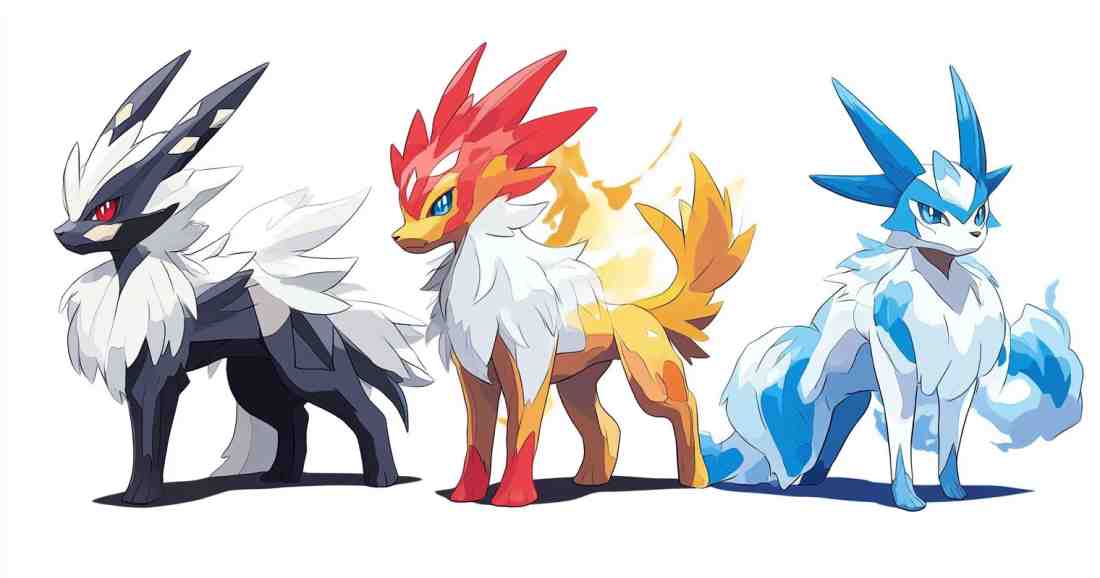
Assembling the perfect team is no easy task, take the What Is Your Pokemon Team Quiz, Build Your Ultimate Pokémon Squad. The What Is Your Pokemon Team Quiz challenges your understanding of team composition, battle strategies, and Pokémon synergy, helping you discover which Pokémon belong on your ultimate team. Every trainer’s Pokémon team reflects their playstyle, strengths, and tactical preferences. But how well do you know which Pokémon align with your battle instincts and personality?
A Pokémon team isn’t just a random selection—it’s a carefully balanced group that suits your training philosophy. The What Is Your Pokémon Team Quiz allows you to explore which six Pokémon fit your battle style, from fast and aggressive lineups to defensive and strategic teams. Moreover, it’s the perfect way to discover how your personality and battle instincts shape your ideal squad.
Why Take the What Is Your Pokémon Team Quiz?
Do you thrive on raw power and speed, like a team built around Charizard and Garchomp? Or do you prefer defensive endurance, relying on Umbreon and Ferrothorn? Furthermore, how well do you understand team synergy, type balance, and competitive strategies? This quiz explores every aspect of team-building, from core Pokémon choices to battle synergy.
Exploring Pokémon Team Archetypes
The What Is Your Pokemon Team Quiz highlights key factors that influence team-building, including Pokémon roles, type diversity, and playstyle preferences.
Pokémon Teams Based on Playstyle
Your ideal Pokémon team depends on how you approach battles. Here are common team-building archetypes:
- Fast and Offensive Pokémon Teams
- Charizard (Fire/Flying): Aggressive attacker, thrives on raw power.
- Jolteon (Electric): High-speed specialist, perfect for quick knockouts.
- Garchomp (Dragon/Ground): Physical powerhouse, dominates with outrageous attack power.
- Greninja (Water/Dark): Versatile speedster, adapts to any battle situation.
- Infernape (Fire/Fighting): Blazing-fast striker, pressures opponents early.
- Talonflame (Fire/Flying): Priority flier, uses Gale Wings to strike first.
- Defensive and Stall Pokémon Teams
- Umbreon (Dark): Tanky wall, soaks damage and outlasts opponents.
- Ferrothorn (Grass/Steel): Defensive menace, punishes physical attackers.
- Toxapex (Water/Poison): Status master, thrives on toxic strategies.
- Blissey (Normal): HP tank, absorbs special attacks effortlessly.
- Corviknight (Flying/Steel): Steel wall, neutralizes physical threats.
- Gastrodon (Water/Ground): Water immunity specialist, counters Electric-types.
- Balanced Pokémon Teams
- Dragonite (Dragon/Flying): Strong attacker, but also durable.
- Aegislash (Steel/Ghost): Switches between offense and defense.
- Togekiss (Fairy/Flying): Status control and flinch king.
- Excadrill (Ground/Steel): Hard-hitting yet defensively solid.
- Rotom-Wash (Electric/Water): Covers multiple weaknesses.
- Salamence (Dragon/Flying): Balanced speed and power.
- Legendary-Based Pokémon Teams
- Rayquaza (Dragon/Flying): The ultimate powerhouse.
- Mewtwo (Psychic): Special attack beast.
- Zacian (Fairy/Steel): One of the most feared sweepers.
- Kyogre (Water): Rain master, controls the battlefield.
- Lugia (Psychic/Flying): Defensive legendary guardian.
- Darkrai (Dark): Sleep-based status expert.
Ultimately, team composition depends on your playstyle, battle preferences, and Pokémon synergy.
Type Balance and Team Synergy
The What Is Your Pokémon Team Quiz also explores type balance and team synergy, which determine team effectiveness:
- Offensive Coverage: Fire, Water, Electric, and Dragon-type Pokémon create a strong attack balance.
- Defensive Synergy: Steel, Fairy, Dark, and Flying-types neutralize common weaknesses.
- Status and Control: Ghost, Psychic, and Poison-types manipulate battle flow.
- Speed and Bulk: A mix of fast sweepers and defensive walls ensures a balanced fight.
Ultimately, a great team covers multiple roles, adjusts to different opponents, and maximizes each Pokémon’s potential.
How Pokémon Teams Reflect Your Personality
The What Is Your Pokémon Team Quiz also explores how your team aligns with your personality and battle instincts:
- Aggressive and Impulsive: Garchomp, Charizard, Jolteon – fast and high-pressure battlers.
- Calm and Strategic: Togekiss, Ferrothorn, Umbreon – defensive, patient, and tactical.
- Balanced and Adaptable: Salamence, Aegislash, Rotom-Wash – flexible, ready for any challenge.
- Mysterious and Unpredictable: Darkrai, Mimikyu, Zoroark – tricksters with unique strategies.
- Majestic and Legendary: Mewtwo, Lugia, Rayquaza – dominant forces that command battles.
Ultimately, your Pokémon team reflects your competitive mindset, emotional strengths, and battle philosophy.
Fun Facts About Pokémon Team Strategies
Did you know balanced Pokémon teams often feature a mix of three attackers, one tank, one setup Pokémon, and one wild card? Moreover, competitive teams frequently use Steel-types for defensive balance, while Fire, Water, and Electric-types dominate offensive play.
Interestingly, status-based teams rely on Toxic, Spikes, and Weather Control, while hyper-offensive teams use Choice Band sweepers for instant KOs. The What Is Your Pokémon Team Quiz includes these fun facts, ensuring an educational and entertaining experience.
Practical Tips for Finding Your Pokémon Team
To excel in the What Is Your Pokémon Team Quiz, focus on these essential strategies:
- Understand Your Playstyle: Are you aggressive, defensive, balanced, or tricky?
- Identify Strengths: Fast battlers align with Charizard, while tactical minds favor Ferrothorn.
- Balance Your Types: Avoid weaknesses, maximize resistances, and build synergy.
- Explore Battle Roles: Mix sweepers, walls, and support Pokémon for ultimate team balance.
- Adjust Based on Opponents: Adapt your strategy, switch Pokémon, and anticipate threats.
Ultimately, Pokémon teams reflect battle mastery, strategic thinking, and trainer identity.
Take the What Is Your Pokémon Team Quiz Now
Are you ready to discover your perfect Pokémon team? The What Is Your Pokémon Team Quiz offers an exciting challenge, testing your battle instincts, team synergy preferences, and strategic mindset. Moreover, it provides fun insights into team-building tactics, Pokémon synergy, and competitive balance. Whether you prefer an all-offense lineup, a strategic tank team, or a legendary squad, this quiz will reveal your ultimate Pokémon team. Take the quiz now and discover which six Pokémon truly belong on your dream team!
